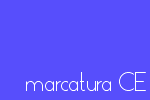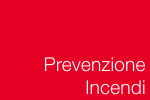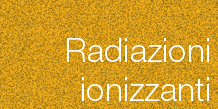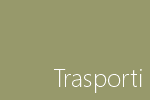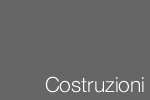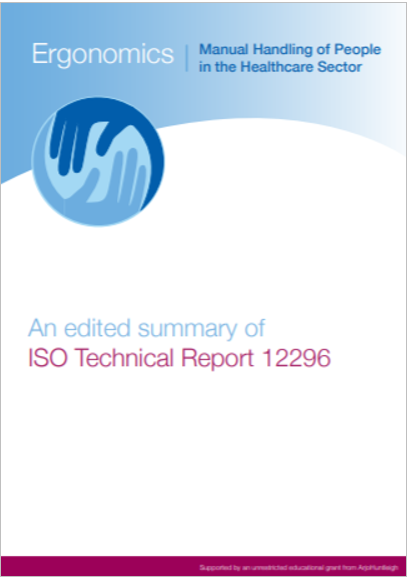
An edited summary of ISO Technical Report 12296
A Technical Report (TR) is derived from information collected by an ISO Technical Committee. A majority vote of the committee members dictates whether the information collected is to be published as a TR, which is entirely informative in nature. A TR, unlike an ISO Standard, does not need to be reviewed until the information contained within is considered no longer valid or useful. This TR was prepared by Technical Committee ISO/TC 159 - Ergonomics.
In the years 2003–2007, ISO has produced specific ergonomics standards (ISO 11228 series) addressing manual handling in the general manufacturing sectors. However, these standards do not fully cover aspects of manual handling when applied to living persons. National and international statistics provide evidence that healthcare staff have a very high risk of musculoskeletal disorders, derived mainly from poor manual patient handling practices.
Experiences from both literature and practice have shown that an ergonomic approach could have a significant impact on reducing risk from patient manual handling, and on improving quality of care. As a consequence, ISO, in agreement with the European Normalization Agency (CEN), decided to produce a specific Technical Report (TR) as a tool for assisting with the application of the ISO 11228 series in the context of the healthcare sector. The European Panel on Patient Handling Ergonomics (EPPHE) was available during this process to support ideas, and provide materials and additional resources to assist ISO TC 159 in the development of the TR.
EPPHE is a collaboration of experts on Healthcare Ergonomics and Musculoskeletal Disorders from the International Ergonomics Association (IEA). The added value of the ISO TR consists in outlining a comprehensive strategy for prevention, based on analytical risk assessment that considers all potential determinants (organizational, structural and educational) as a basis for consequent risk reduction. The annexes provide relevant and detailed information for an adequate application of all aspects of this strategy.
This edited summary of the TR has been kindly provided by ArjoHuntleigh as an overview of all the key points required for implementation of a manual patient handling strategy. It is not a substitute for the TR but a valuable guide. Most importantly, both the TR and this summary show that a comprehensive and participatory approach is essential in changing work practices, defining training needs, purchasing technology/ equipment and designing work environments.
The ISO TR gives an overview of evidence based methods to assess problems and risks associated with manual patient handling, and details how to identify and apply strategies and solutions to reduce these risks. It reviews hazard identification and risk assessment, not just in relation to health risks, but also in identifying and solving problems. Manual patient handling can induce high loads to the musculoskeletal system of the caregiver, and static overload is a risk when patient handling is being undertaken.
It provides recommendations for patient handling based on the following:
1. Estimation and evaluation of risk;
2. Work organization of patient handling interventions;
3.Handling aids and equipment;
4. Buildings and environments where patients are handled;
5. Caregivers’ education and training;
6. Evaluation of intervention effectiveness.
The ISO TR is based on studies of approaches to manual patient handling and on the consensus of international experts from several fields. This edited document is a summary of the full ISO Technical Report, intended as a guide and ready reference to the main issues covered by the report.
...
The risk assessment model below can be used to demonstrate how hazard identification and risk assessment are related at health risk identification, in problem identification and in problem solving.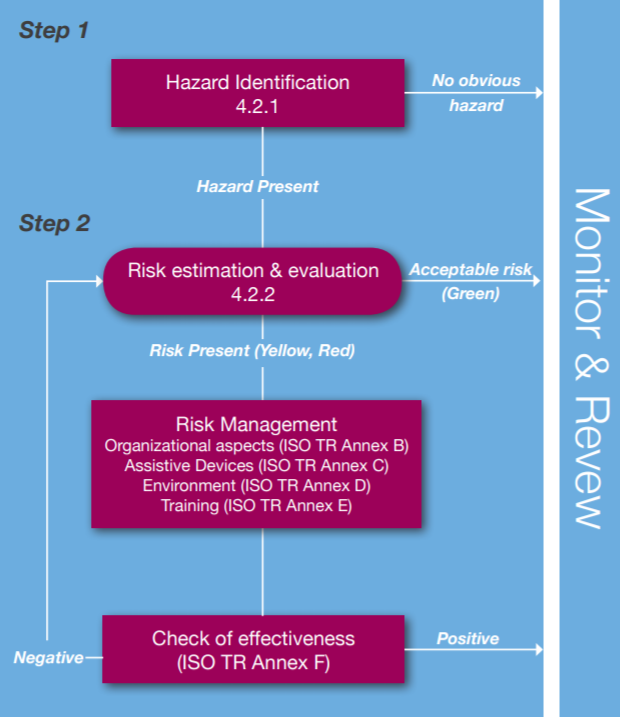
...
add inn attachment
ArjoHuntleigh 2012
Collegati
MMC | MR | SP: Legislazione, Norme tecniche e Documenti INAIL
ISO/TR 12295 Documento applicativo rischio MMC ISO 11228-X e ISO 11226
Analisi normativa rischio MMC: ISO 11228 e il Metodo NIOSH
Rischio MMC e ISO/TR 12295:2014
Valutazione rischio MMC ripetitivi ISO 11228-3 OCRA | Semplice








